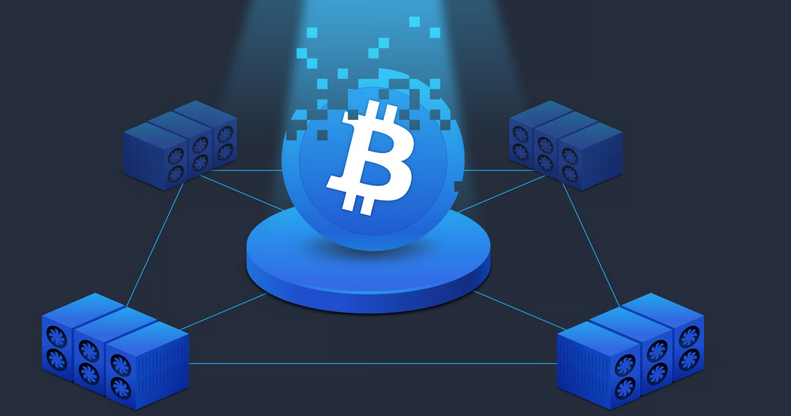Bitcoin, the pioneer of cryptocurrencies, has an intriguing origin story. But how are new bitcoins created and transactions verified? Enter the world of Bitcoin mining, an essential process that ensures the integrity of the entire Bitcoin network. In this blog post, we will delve into the intricate workings of Bitcoin mining, understand its significance, and evaluate whether it’s a worthwhile endeavor in today’s cryptocurrency landscape.

The Basics of Bitcoin Mining
Bitcoin mining involves solving complex mathematical problems, aiming to validate transactions on the network and add them to the public ledger, the blockchain. Miners compete to solve these puzzles, and the first one to succeed gets to add a new block to the blockchain, earning newly minted bitcoins and transaction fees as a reward. The process is resource-intensive and requires specialized hardware.One important thing to note is that you can also use bitcoin at any online casino when placing your bets .
Mining Hardware
Mining started with basic computers, but as the network grew, so did the complexity of the puzzles. Miners now utilize powerful hardware, such as ASIC (Application-Specific Integrated Circuit) machines, designed to handle the intense computational demands of mining. These specialized machines significantly enhance mining efficiency and increase the chances of solving cryptographic puzzles.
Mining Pools
Mining pools are collaborative efforts where miners combine their computational power to increase the likelihood of solving complex mathematical problems and earning rewards. By pooling resources, miners receive a share of the profits based on their contribution. This approach allows smaller miners to have a consistent income stream rather than relying on sporadic solo rewards.
The Halving
Bitcoin has a built-in mechanism known as the “halving,” which occurs approximately every four years. During this event, the rewards for mining new blocks are halved. While this reduces the supply of new bitcoins, it can potentially impact miners’ profitability. However, historically, the reduction in supply has also corresponded with an increase in bitcoin’s value, potentially offsetting the reduced mining rewards.
The Cost of Mining
Bitcoin mining is power-hungry, and electricity constitutes a significant portion of mining expenses. Miners must carefully consider the cost of electricity in their respective locations and balance it against the potential rewards. As the network’s difficulty increases, requiring more computational power, the electricity costs can escalate, impacting the profitability of mining operations.
Environmental Concerns
The substantial energy consumption associated with Bitcoin mining has raised environmental concerns. Critics argue that the carbon footprint of the network is too large and unsustainable. However, proponents counter that the energy consumption is necessary for the security and decentralized nature of the network. Balancing these concerns with the potential benefits of the technology is a significant consideration for both miners and the wider community.
Is Bitcoin Mining Worth It?
The question of whether Bitcoin mining is worth it depends on various factors, including the cost of electricity, the price of Bitcoin, mining hardware efficiency, and individual risk tolerance. It’s crucial to conduct a thorough cost-benefit analysis and forecast potential returns. While mining can be profitable during bullish market cycles, it’s essential to be prepared for fluctuations in profitability and adjust strategies accordingly.
The Future of Mining
The landscape of Bitcoin mining is continually evolving. Technological advancements, regulatory changes, and market dynamics can significantly impact the mining sector. Miners need to stay informed about the latest developments and be ready to adapt their strategies to remain competitive and profitable in this dynamic ecosystem.
Conclusion
Bitcoin mining is the backbone of the Bitcoin network, ensuring its decentralization, security, and integrity. While it has evolved from a hobbyist’s endeavor to a complex industrial operation, its potential profitability remains a topic of debate. As the cryptocurrency landscape continues to unfold, miners must carefully evaluate their circumstances and calculate whether the rewards of mining outweigh the associated costs.

